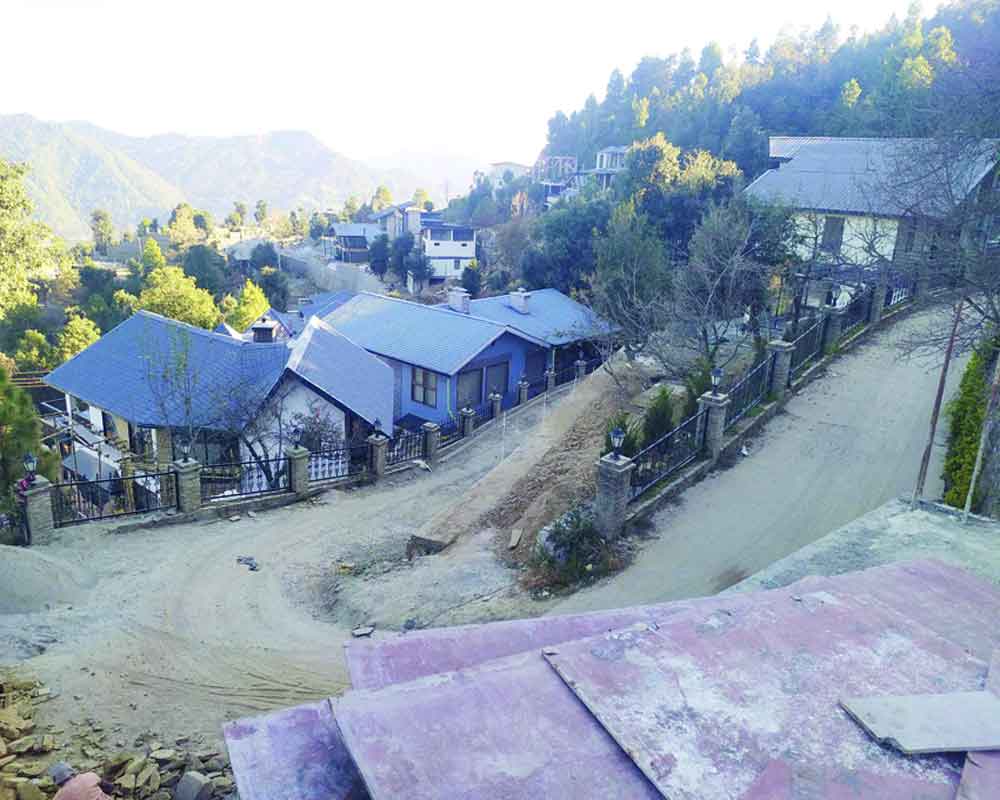As machines replace manual labour, rural women bear the brunt of diminishing opportunities, exacerbating the exodus towards urban centres
As a child, I often sat amidst the greenery, gazing at the Himalayan mountains. Returning after many years, the changes in the landscape and my village were striking. The condition of schools has improved significantly, and piped water lines are visible in every home, along with the construction of toilets. Most houses, once with stone roofs, have now transitioned to concrete structures. While the physical infrastructure development was impressive, it lacked the charm that fascinated me during my childhood. The ongoing changes have altered the village's ambience due to modernization.
Pankaj Tiwari, 23, from Lweshali village near Haldwani, shares, 'There was a time when vegetables from our village were sent to plain areas for sale, ensuring good income for villagers, leading to a prosperous and content life. However, due to the impact of modernization, people have either abandoned or reduced agricultural work. Now, even for their sustenance, villagers have to source vegetables from the plains. Rural communities are abandoning villages to seek livelihoods in urban areas, relying on meagre-paying jobs, as the responsibilities of family upkeep rest solely on their shoulders.
Initially, stone houses were common in the hills, providing a sense of living in the mountains. 'Bakhali,' a collective structure where 5-6 families lived together, was prevalent.
However, due to increasing tourism, these 'Bakhali' spaces are now being converted into hotels/resorts/buildings, resulting in continuous deforestation and harm to the hills. The lure of money and employment opportunities is inadvertently causing us to harm our mountains.
In reality, the geographical conditions were a source of employment for rural communities, which is now being undermined by modernisation. The repercussions are being felt by everyone, with rural women bearing the brunt. The participation of women in various activities, once common, is diminishing as machines take over tasks. While the speed of certain tasks has increased with machines, local employment opportunities have been reduced, and current work is being assigned to external labourers. Presently, livelihood opportunities at the village level have become scarce, compelling people to leave their homes. This is endangering the existence of the mountains.
Saraswati Devi, 68, from Bhunoli village, recounts significant changes in her lifetime. At 12, she witnessed both men and women singing and laughing together while ploughing fields with the help of oxen. However, at 35, this practice was limited to a few families. Today, at 68, neither family members nor oxen can be seen in these fields; machines have taken over. The geographical and cultural gap created by modernization is forcing people away from each other. Saraswati Devi states that modern tools and technology have not only taken away rural employment but also distanced village residents from their villages.
Development is not inherently negative. It not only facilitates the acquisition of amenities but also plays a crucial role in the economy. However, the ongoing changes in villages due to modernization pose a dangerous threat. This danger is not only related to social and cultural transformations but also involves the linked peril of losing the identity of the hills.
If not stopped in time, a day is not far when the simplicity of the hills and its culture will disappear into anonymity, and future generations will only see mountains in books or pictures. Development is simultaneously robbing the rural population of their livelihoods, demanding timely interventions and policies that allow both development and local employment in the villages.
(The author hails from Haldwani and writes on development issues; views are personal. Charkha Features)
























